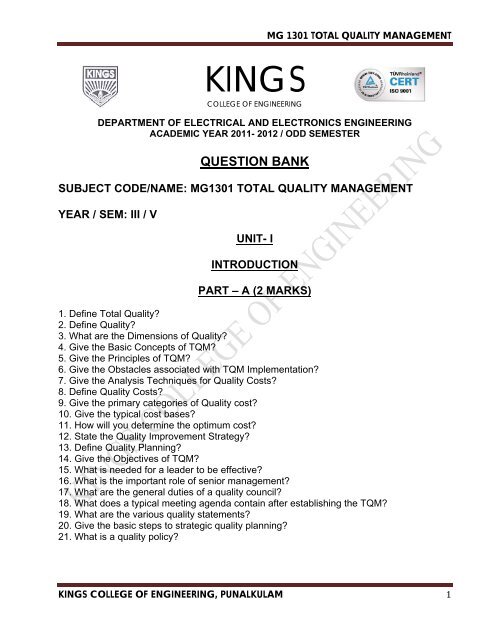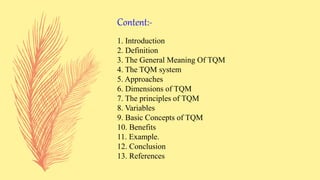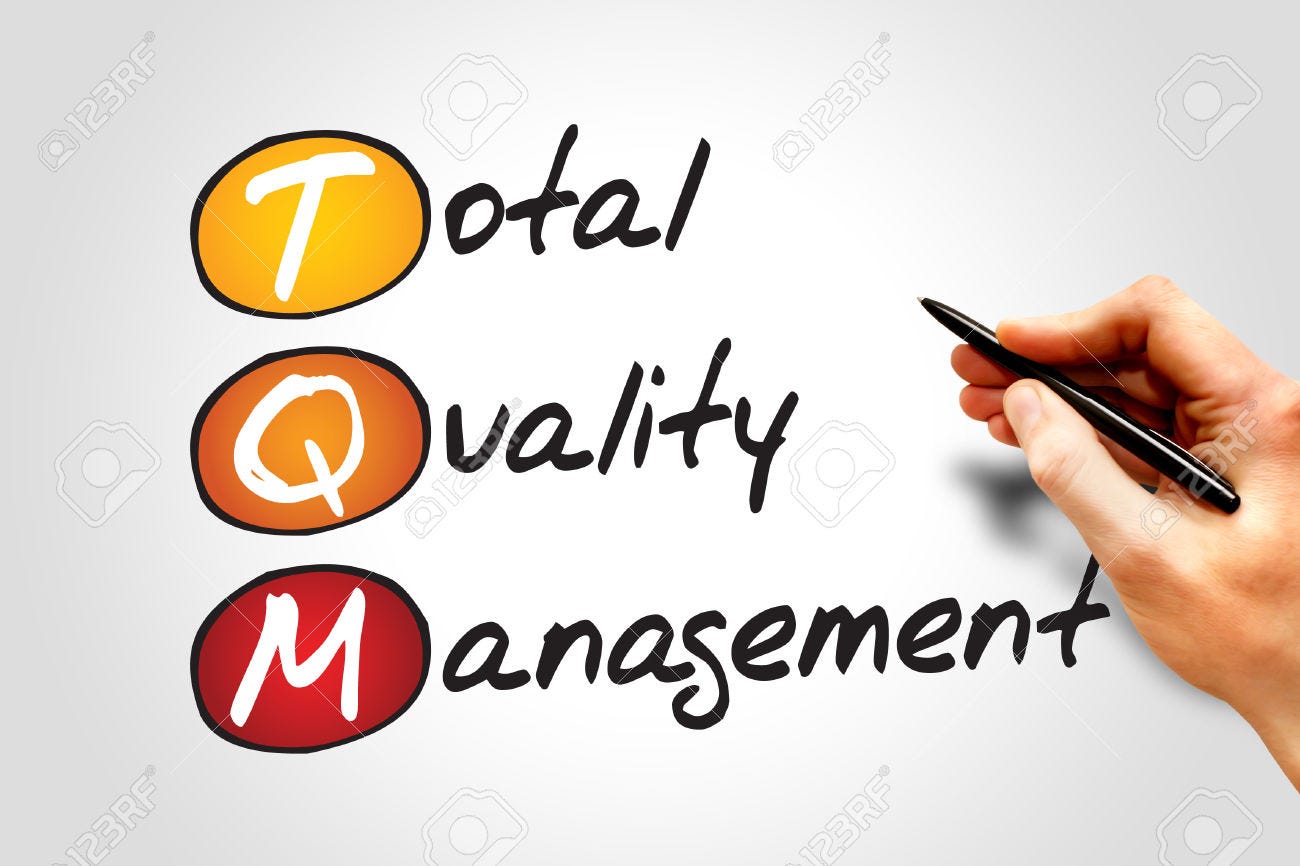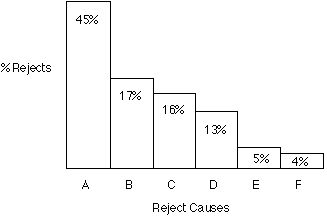Total Quality Management (TQM) is a management approach that focuses on continuous improvement and customer satisfaction. It involves the active participation of all members of an organization in the pursuit of excellence and the continuous improvement of processes, products, and services. TQM is based on several principles that guide the actions of organizations in their pursuit of excellence.
The first principle of TQM is customer focus. This means that the organization puts the needs and expectations of its customers at the center of its operations. This requires a deep understanding of customer needs and expectations and the ability to design processes and products that meet or exceed those expectations. In order to achieve this, organizations must involve customers in the design and development of products and services, as well as gather and analyze customer feedback to identify areas for improvement.
The second principle of TQM is continuous improvement. This means that the organization is always looking for ways to improve its processes, products, and services. This requires a culture of continuous learning and the willingness to embrace change. Continuous improvement involves identifying problems, finding root causes, and implementing solutions. It also involves setting clear goals and benchmarks and regularly reviewing progress against those goals.
The third principle of TQM is teamwork. This means that the organization encourages and fosters collaboration among all members. Teamwork requires good communication, trust, and mutual respect. It also requires that everyone be involved in decision-making and problem-solving, as well as be held accountable for their contributions.
The fourth principle of TQM is leadership. This means that leaders in the organization set a clear vision and direction and inspire others to work towards it. They also provide the resources and support necessary for employees to achieve their goals and provide guidance and mentorship to help them develop their skills and knowledge.
The fifth principle of TQM is process-oriented approach. This means that the organization views all activities as interconnected processes and focuses on improving those processes in order to achieve overall organizational improvement. This requires the identification and analysis of key processes, the measurement of performance, and the implementation of process improvements.
In conclusion, TQM is a management approach that focuses on continuous improvement and customer satisfaction. It is based on five principles: customer focus, continuous improvement, teamwork, leadership, and process-oriented approach. By embracing these principles, organizations can improve their processes, products, and services and achieve overall excellence.







